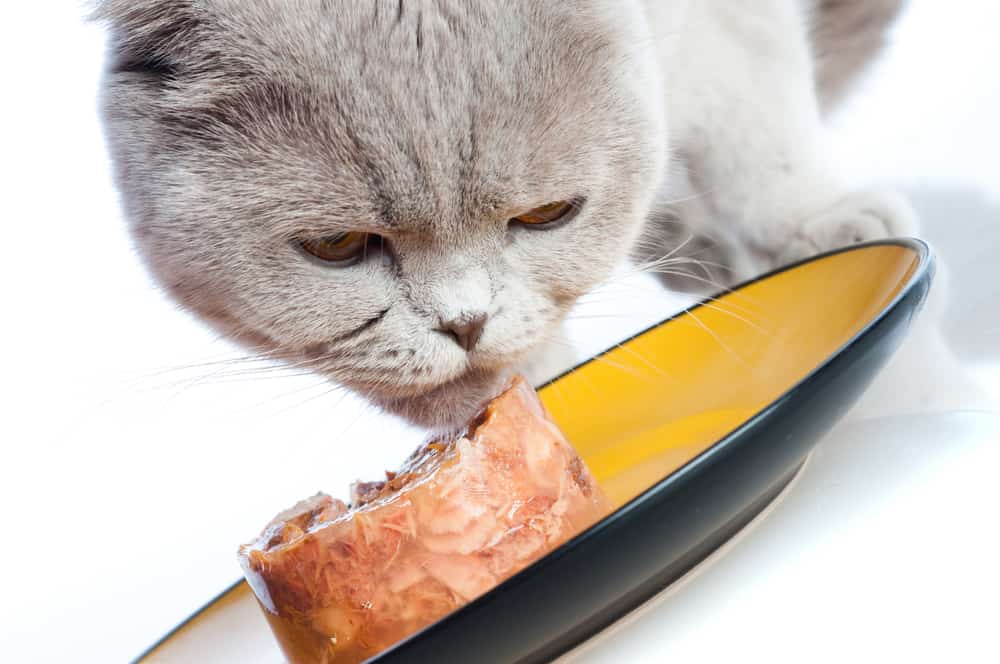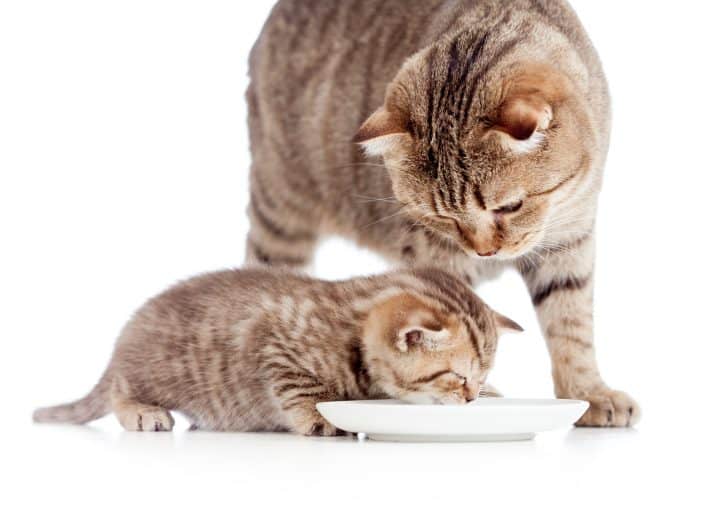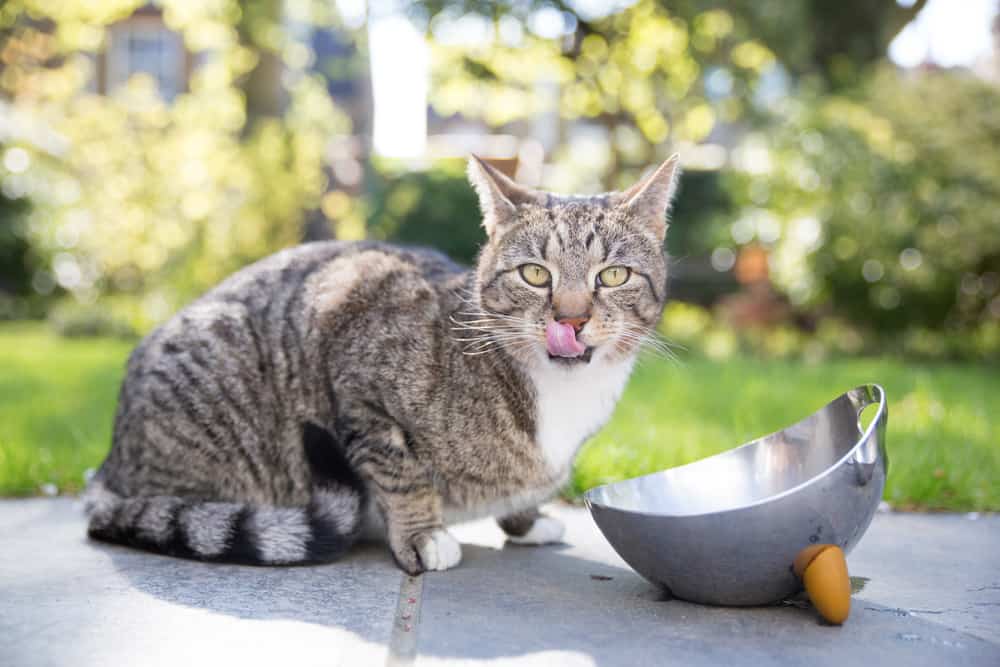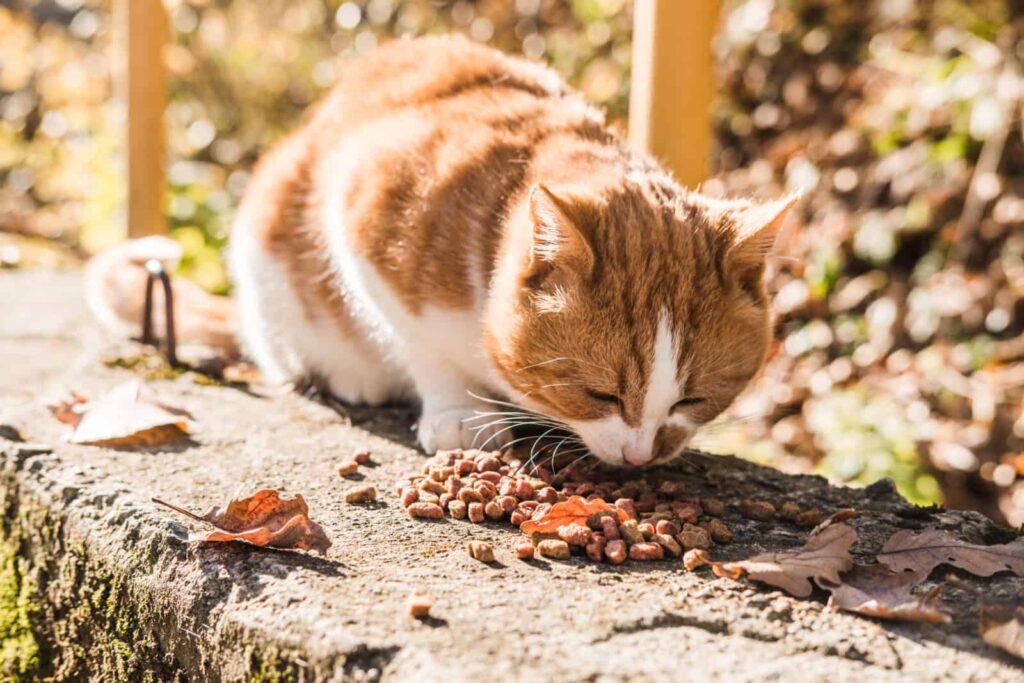in Food & Diet
Agar-agar may not conjure up images of whole foods like turkey or sweet potato, but it does have a benign purpose in your cat’s food. As doting cat owners, we strive to ensure harmful or unnecessary fillers stay far from the food dish. Here we discuss the origin, purpose, and safety of agar-agar in cat food to help you make an informed choice about this food additive.
So what is agar-agar doing in cat food? Derived from red algae, agar-agar safely provides a palatable texture to canned cat food through its gelling properties. It is not the same as carrageenan, and does not cause harm in wet cat food. Health benefits to cats are unproven, although people use agar-agar for constipation and weight loss.
Let's take a closer look.
What is Agar-agar?
The Gelidium and Gracilaria species of red algae are cultivated commercially for agar-agar production. Agar-agar comes from the cell wall of these species, and is comprised of two polysaccharides: agarose and agaropectin. Agarose confers the strong gelling properties. Gracilaria must receive an alkaline pretreatment to remove sulfates, improving its ability to gel.
This colloidal polysaccharide is used as a gelling agent, stabilizer, and thickener in human and pet foods globally. The Food and Drug Administration (FDA) and other food regulatory agencies internationally consider agar-agar safe to consume as a food additive. It is also used in medicines, cosmetics, and scientific applications.
Whether you are vegan or a steak-lover, you have likely consumed agar-agar in one form or another. Agar-agar has been used for its gelling properties since its discovery in Japan in the 17th century. This odorless and tasteless additive is commonly used worldwide in jellies, puddings, cream cheese, yogurt, pie fillings, soft candies, baked goods and canned meat products. Agar-agar is considered halal, kosher, gluten-free and vegan, and replaces animal-derived gelatins.
Where Does Agar-agar Come From?
Gelidium is harvested in Spain, Portugal, Morocco, Japan and Mexico, whereas Gracilaria, preferred for food-grade agar-agar, is commercially cultivated in South America, Indonesia, China, the Philippines, and Vietnam.
Red algae is harvested in summer, dried, bleached, and boiled to extract the agar. The agar undergoes final processing steps before packing. Food-grade agar-agar comes in four forms: strips, bars, flakes and powders. Agar-agar is considered natural, but alkalinizing pretreatment of the Gracilaria species technically classifies it as synthetic.
Health Claims in People
Agar-agar has been touted as a healthful supplement, often consumed in powdered form mixed with hot tea or water. In Japan, this “Kanten diet” is said to promote weight loss by creating a feeling of satiety as it bulks up when eaten. It is also consumed as a laxative, though it may cause esophageal and bowel obstruction if not taken with adequate water.
None of these health claims have been proven through scientific study. There are anecdotal reports of owners successfully giving small amounts of agar-agar with water to their cats as a laxative, but these benefits are not proven and a veterinarian can suggest many safe and natural alternatives for constipated cats.
Agar-Agar in Cat Food
In canned cat foods, agar-agar produces a desirable gel consistency and it's much less common to find in dry cat food brands. There are no proven health benefits nor harmful effects. Owners might avoid this ingredient for underweight cats or those with easily obstructed bowels, given the anecdotal impact in people, but there is no evidence cats experience accelerated satiety. Bowel obstruction also has not been reported in cats following ingestion of agar-agar in cat food.
The food additive carrageenan, derived from a red seaweed known as Irish moss, is a different product and a source of controversy regarding safety. Agar-agar and carrageenan are sometimes confused by consumers.
The Bottom Line
Agar-agar is a harmless food additive used in many forms world-wide, including canned cat food. It does undergo commercial processing, but there have been no pet food recalls due to agar-agar and no known harmful affects. There are also no proven health benefits. Agar-agar produces a palatable consistency in wet cat foods and replaces non-vegan gelatins.
Read Next: Guar Gum In Cat Food





